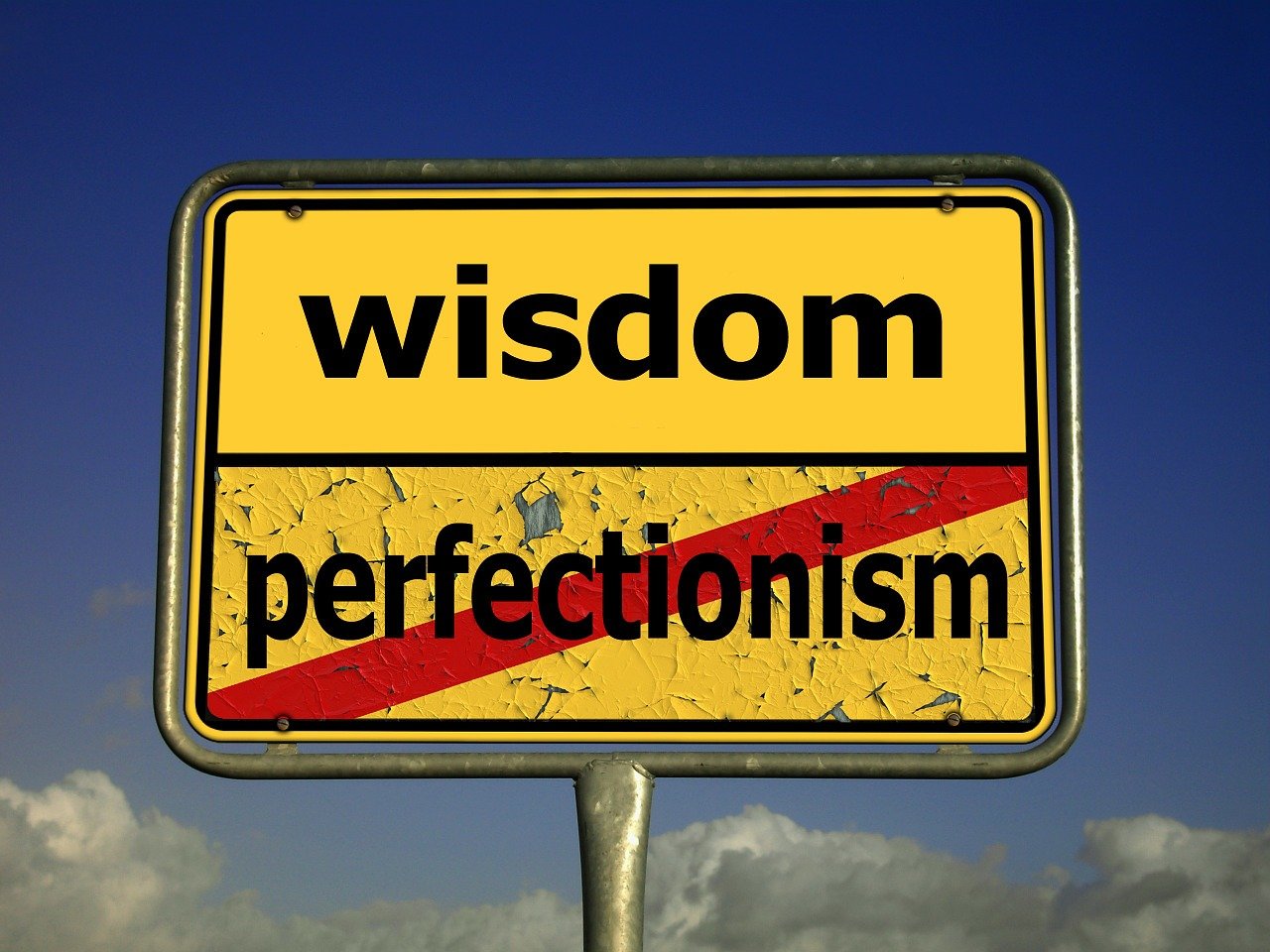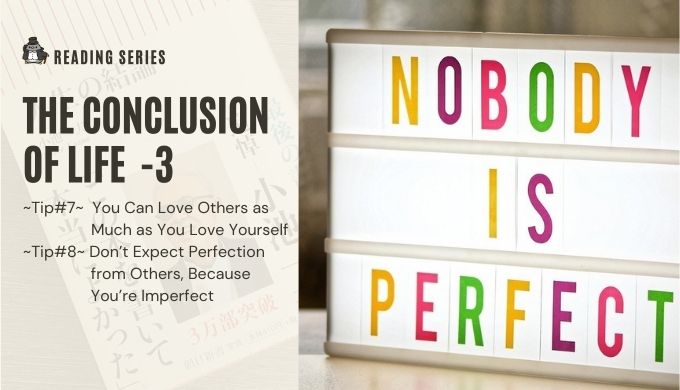Hi everyone! It’s Pentleman (@pentleman_blog) here!
 Sloth-san
Sloth-san
He can’t be successful business person. For sure.
 Dolphin-san
Dolphin-san
Someone who expect others to be perfect is not perfect.
Those who always say such kind of things are the last person to work hard actually.
It seems we should avoid such awful personality especially in a working place.
– People who start managing, and worried about how to expect to the team members
– People who are interested in Japanese “poor-“ and “stupid” legacy culture
The concept of this series:
Reading “The Conclusion Of Life” (series 1): 88 Japanese Tips For Getting Along With People
This article hopes to help people who seek to have better relationships.
Let’s see the tips of the day!
~Tip#7~ You Can Love Others as Much as You Love Yourself

This is truth. We can realize this truth as we see others and yourself.
You can’t love others if you don’t love yourself.A person doesn’t affirm others beyond the level of affirmation of oneself.
If a person doesn’t know ways to respect oneself, he can’t do it to others.In other words, if you don’t know how to love yourself, you will never know loving others too.
Having self-confidence helps you to be nice to others.
People who have similar minds as you will come around you then.
In addition, someone who saves himself can save others too.Loving yourself is the first step to connect with others.
Cited and Translated from: The Conclusion of Life, by Kazuo Koike
(人生の結論, 小池一夫 )
Poor-wife & Stupid-son
Decades ago, there was a Japanese odd culture wherein men introduce their loving wife and son as “poor-wife” or “stupid-son” in public.
In some areas around the country, this culture still exists.
I have observed that this situation is still being practiced by some elderly.
When I was young, I always felt strange and confused when I watched anime and dramas, I didn’t realize that they were faking modesty and humility.
Moreover, I really thought that the couples loved each other that’s why they got married.
And that the most important person for them was their son.
However, the initial expressions, “poor-wife” and “stupid-son” are completely opposite to “loving wife” and “precious son” ironically.
Therefore, they didn’t really get along smoothly with one another.
Why do we need to degrade our family?
These “poor and stupid” culture seems odd from the point of view of many people around the world.
Basically, most of Japanese people don’t express their thoughts directly in front of others no matter how much they value their family.
Simultaneously, the Japanese don’t expect others to praise them in public.
In short, we haven’t had a culture to complement each other but the trend of globalization made the gradual change.
The mechanism of humility is a mismatch between the “real thought” and “how it is being expressed”.
However, I wonder if we really need to make others feel comfortable by degrading himself, his wife, and his children.
I would rather put more value on improving the self-worth of my family and making them happier rather than following a typical Japanese style.
~Tip#8~ Don’t Expect Perfection from Others, Because You’re Imperfect

These days, “faultfinders” are increasing.
Just thinking about it makes me shudder.
It seems like netizens nowadays think that they have the right to judge anyone on social media. ***
For example, netizens compare a pageant candidate who won the crown to the most beautiful woman in a certain village.
There is a trap that such faultfinders fall easily into.
That is they often unintentionally self-evaluate due to insecurities.
Their desireful eyes look at others brazenly, then stare back at themselves.
These anonymous faultfinding desireful netizens give themselves amazingly low evaluation.
I realize that this society is growing in its number of bias and incongruous people.
I have a feeling that if I’m not aware of the presence of faultfinders on the internet society.
I would be happier and because knowing the most beautiful woman in a village gives enough happiness for that.
Cited and Translated from: The Conclusion of Life, by Kazuo Koike
(人生の結論, 小池一夫 )
Faultfinders have two faces
Such evaluators are existing everywhere
Especially on SNS like Youtube and Twitter; We easily find them.
By the way, one of the Japanese features is caring what others think, and it usually happens.
The attitude would act as a merit of understanding what customers want, but at the same time, the point of view can be a strong stressor frequently.
When perfectionists complain about others, Honne (本音) and Tatemae (建前) culture come out.
In other words, when they face the person, they talk to him directly and with a smile.
But their faces turn grumpy when the person turns his back, or when he’s already away.
An ironical story in K-prececture
The culture in a “certain” prefecture is really famous.
I admire their speaking skills with a double tongue with elegant irony.
Here’s an example of a conversation between a mother and a person in K-prefecture.
K-person- “Your son got to play the piano very well.~”
Usual Japanese would reply in the following way.
Mother as a wrong reply- “Not so much, actually (being humble).”
The mother should respond like,
Mother as a correct reply- “I’m sorry that you get to hear the sound very loud.”
Actually, the person was complaining that the piano was loud.
Nagging mindset will affect you and come back on you like a boomerang.
I have never seen critics and reviewers living their happy lives.
I would like to stay and spend time with my loving family rather than non-productive and time-wasting activities.
~Tip#8~ Don’t Expect Perfection from Others, Because You’re Imperfect
 Pentleman
Pentleman
Pentleman’s photo travel

@ Tojinbo, Sakai, Fukui in November



